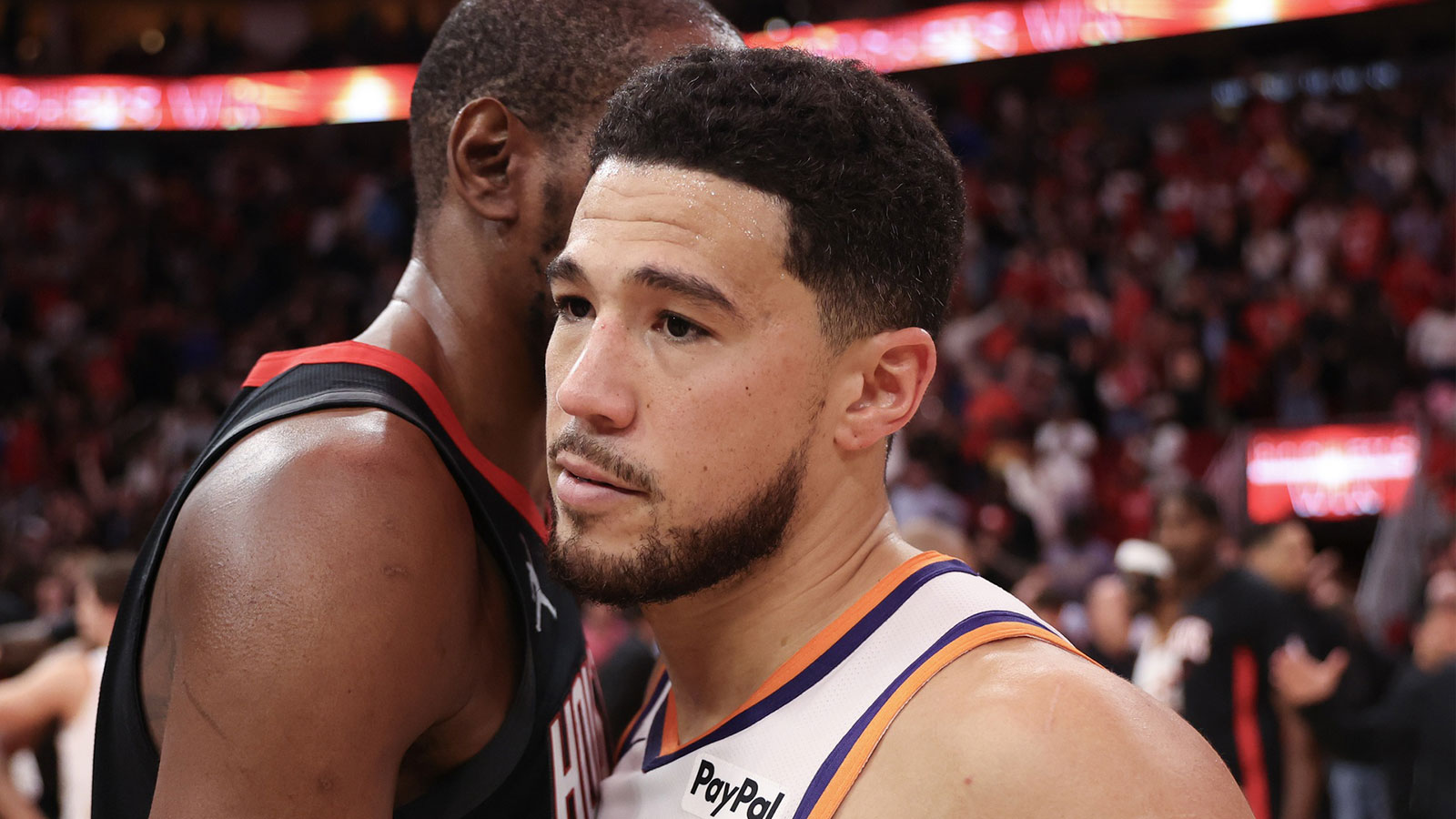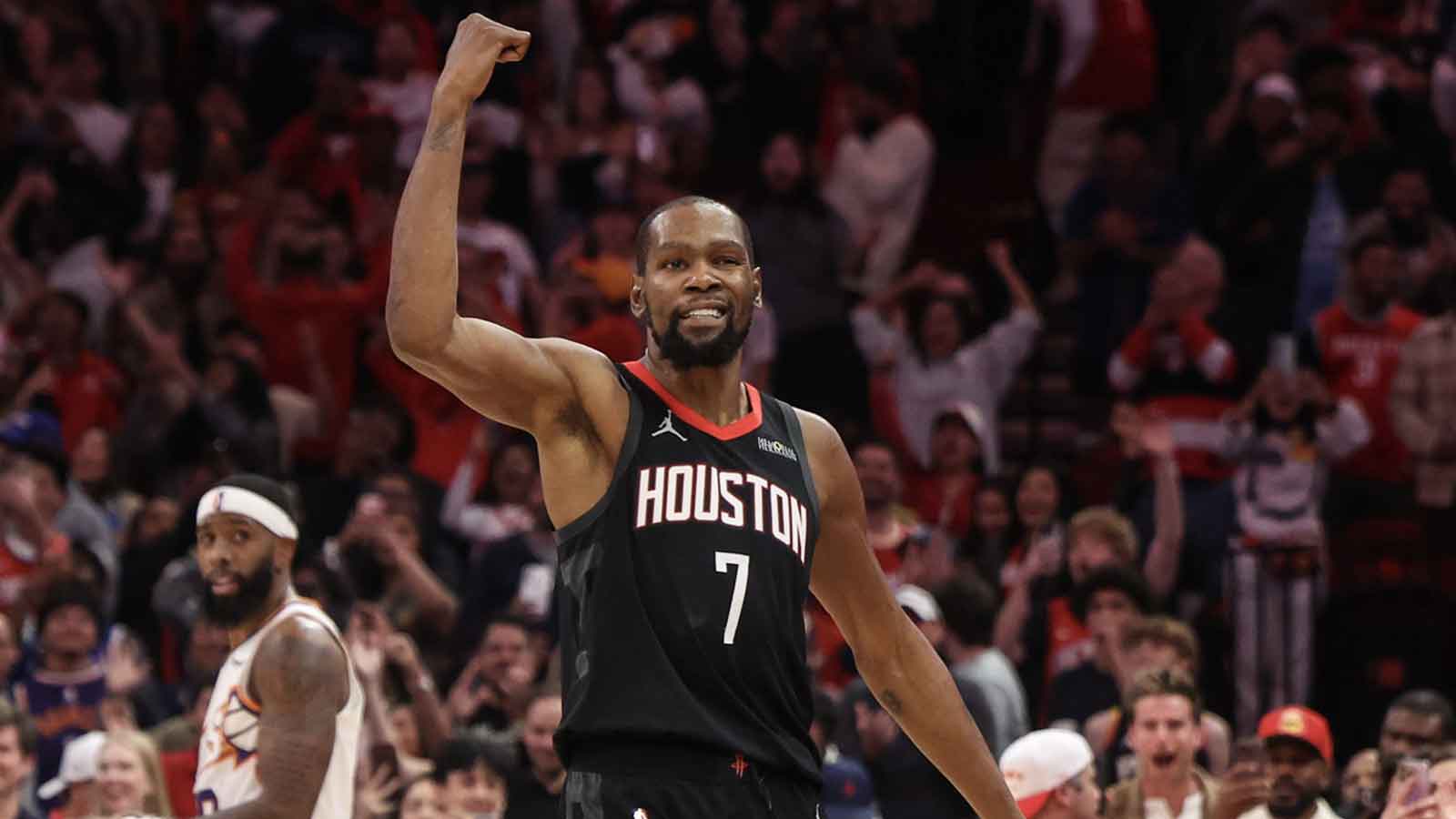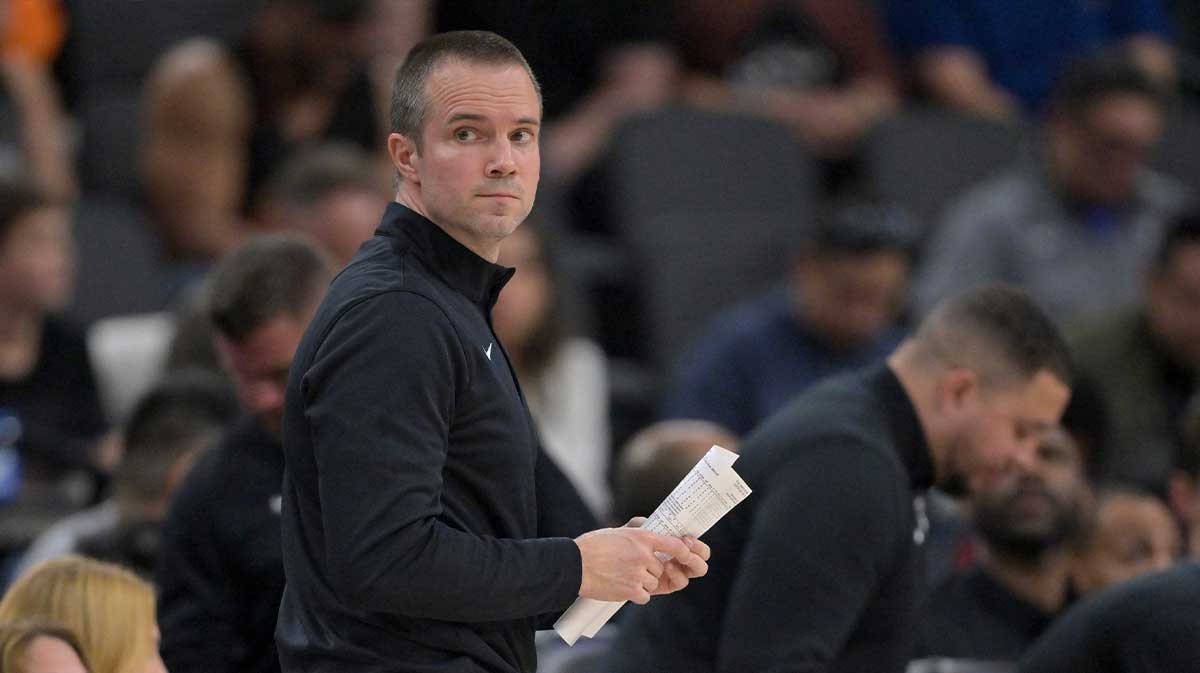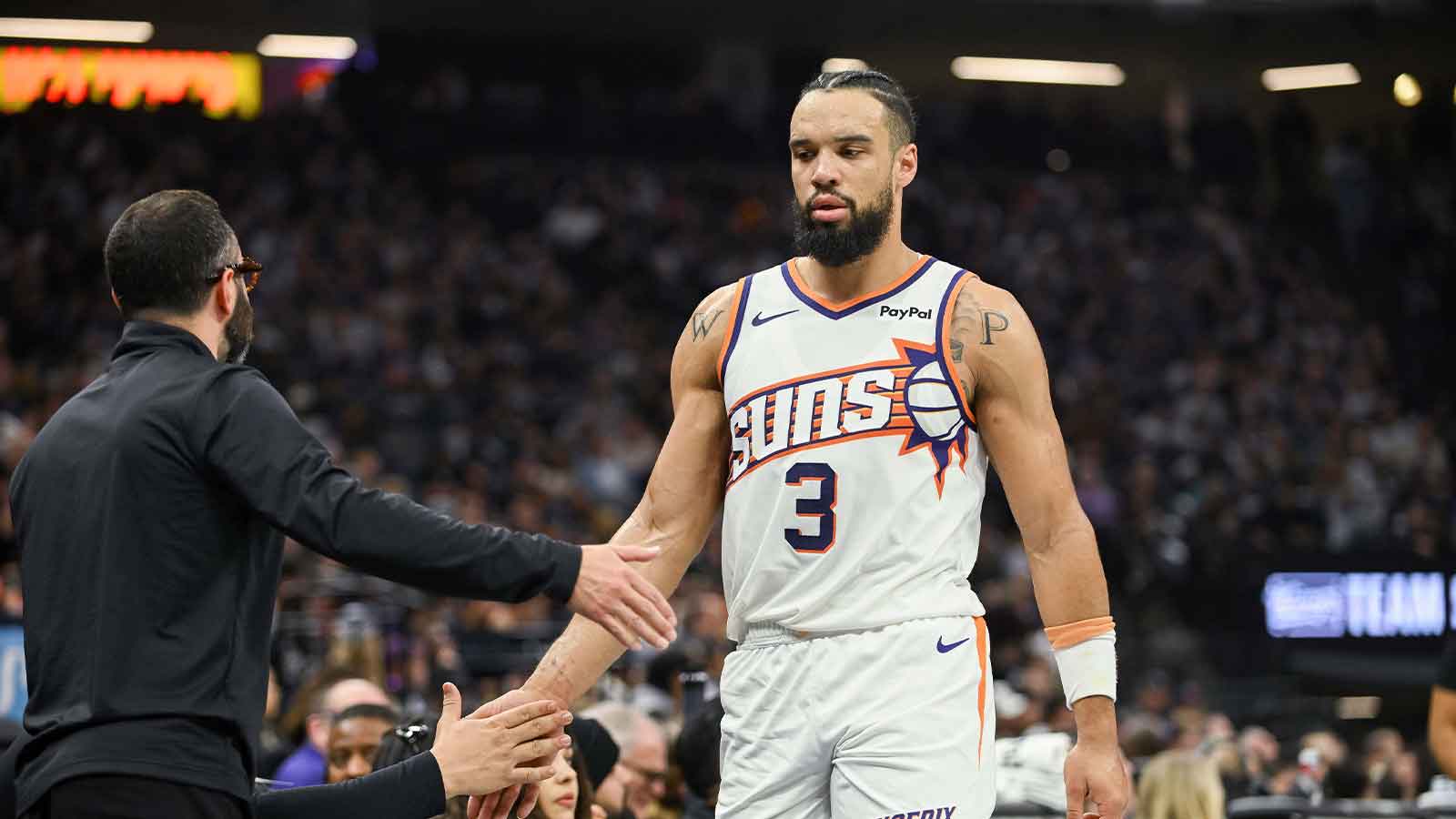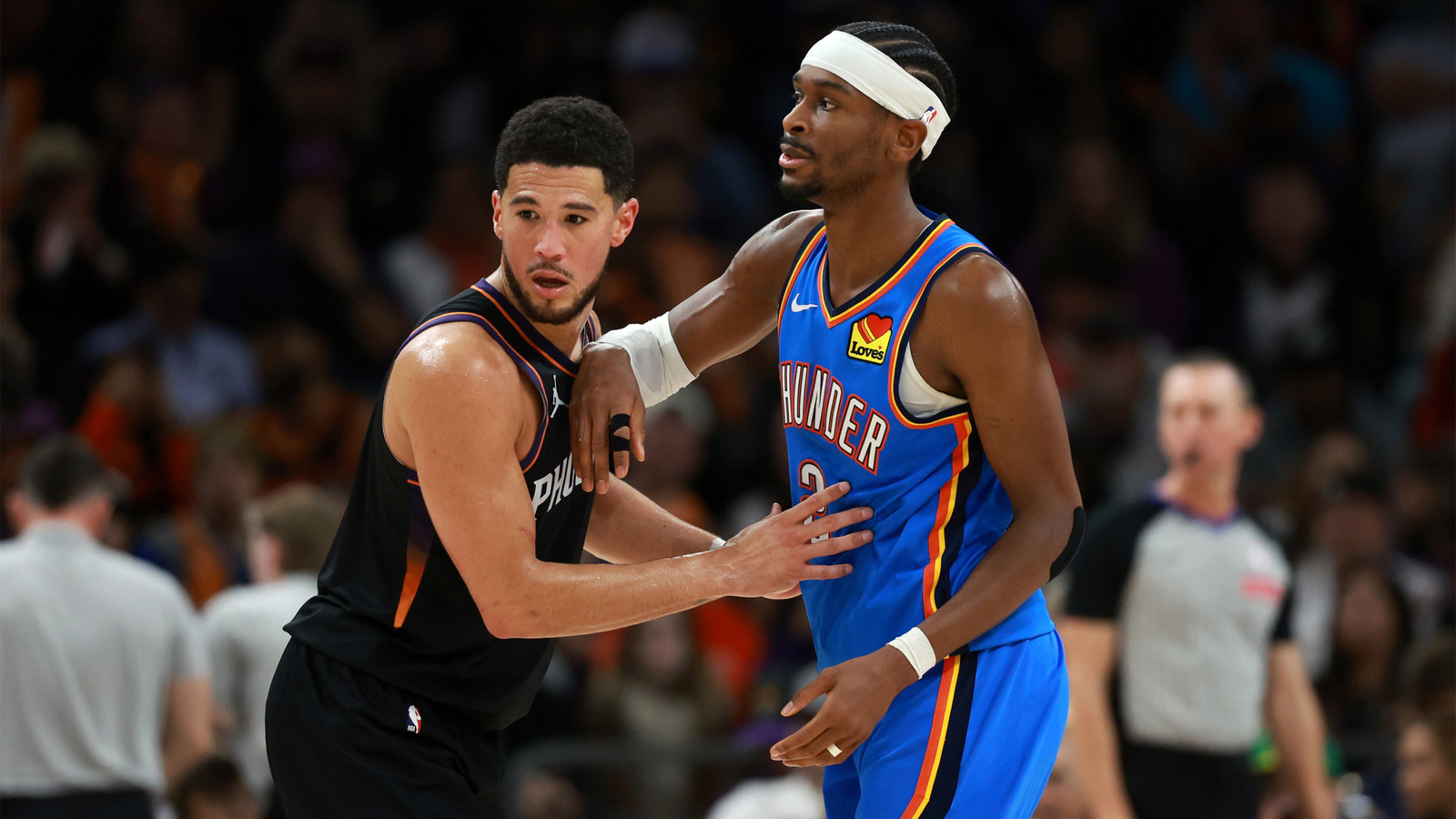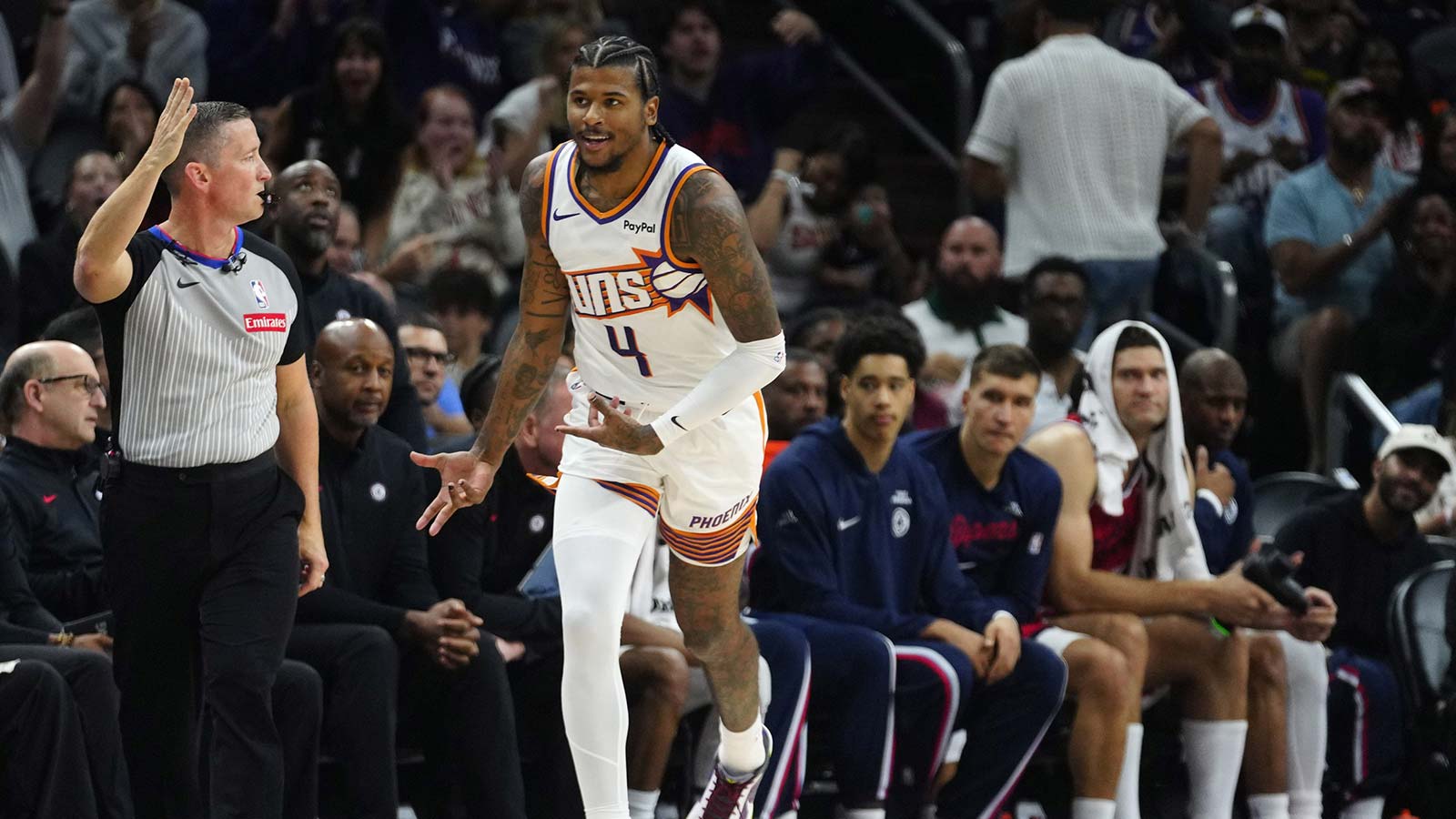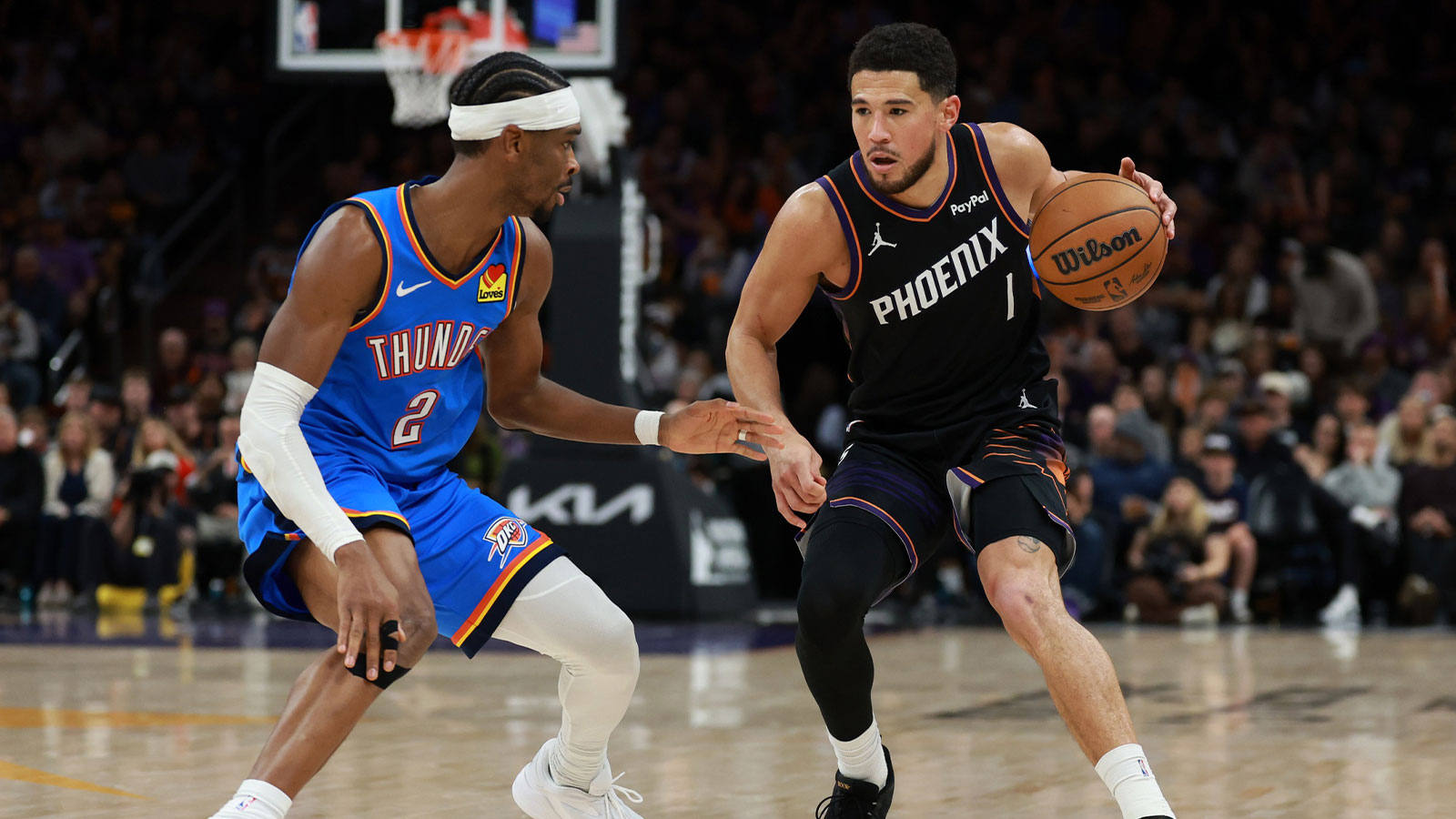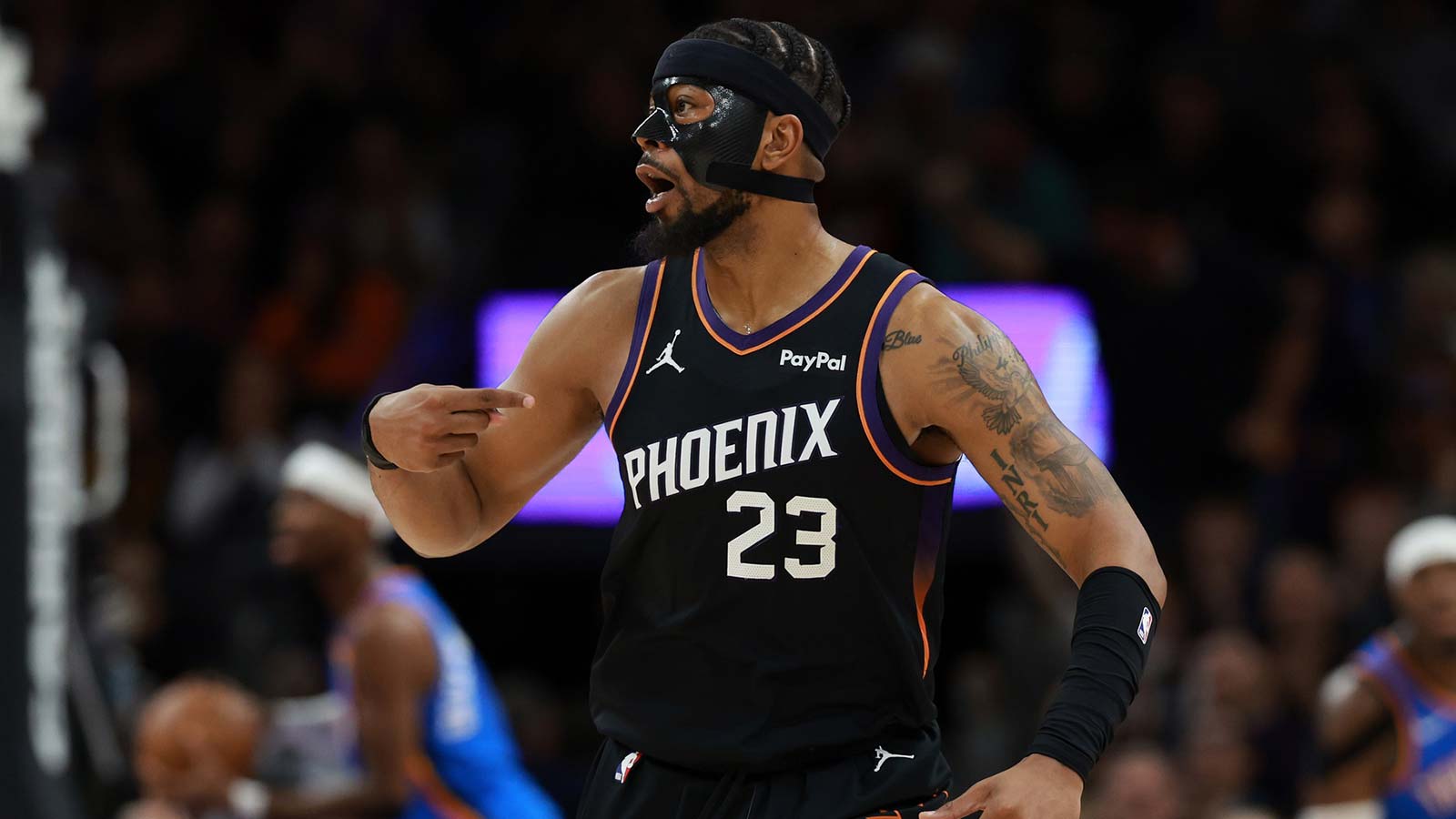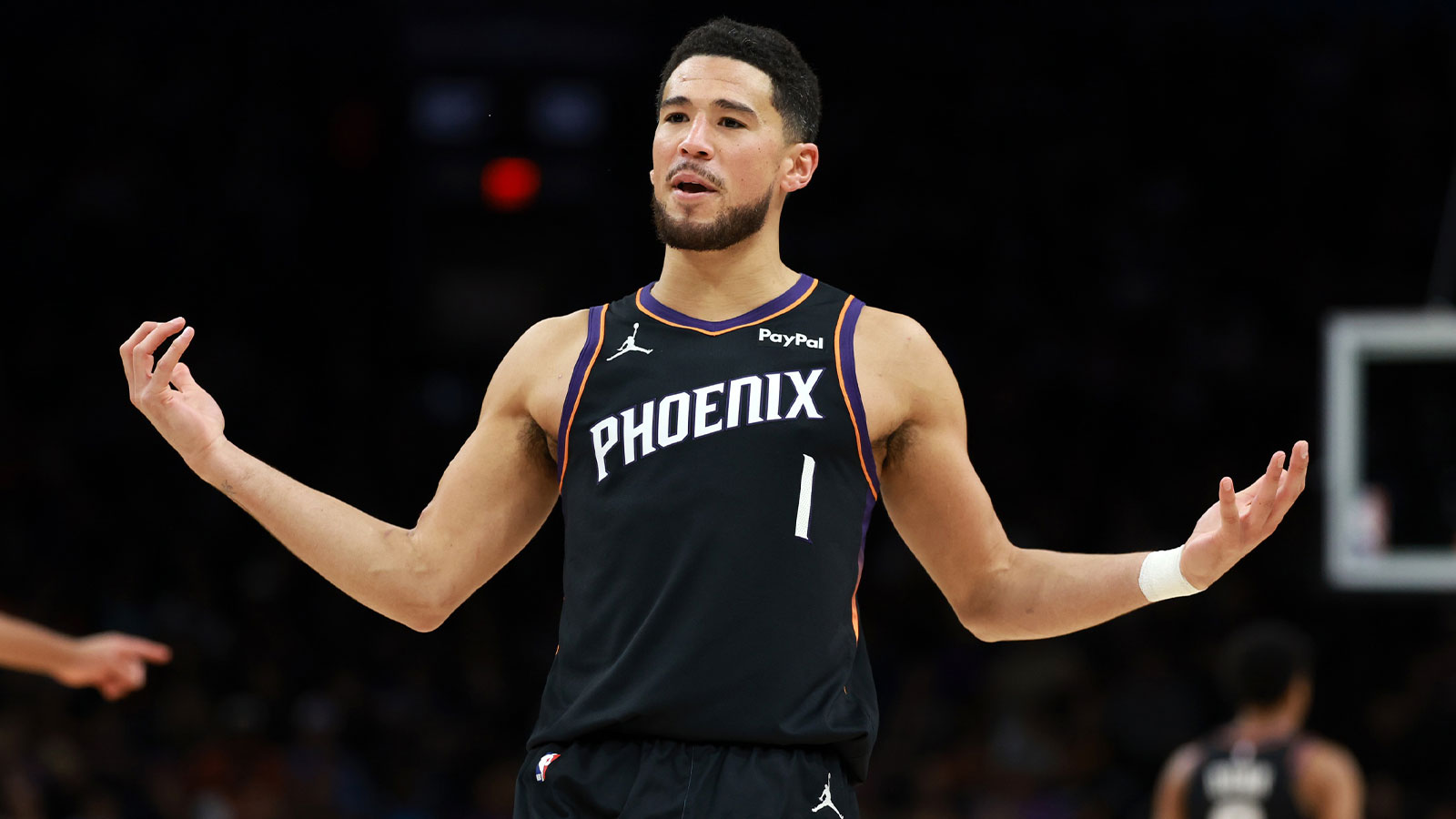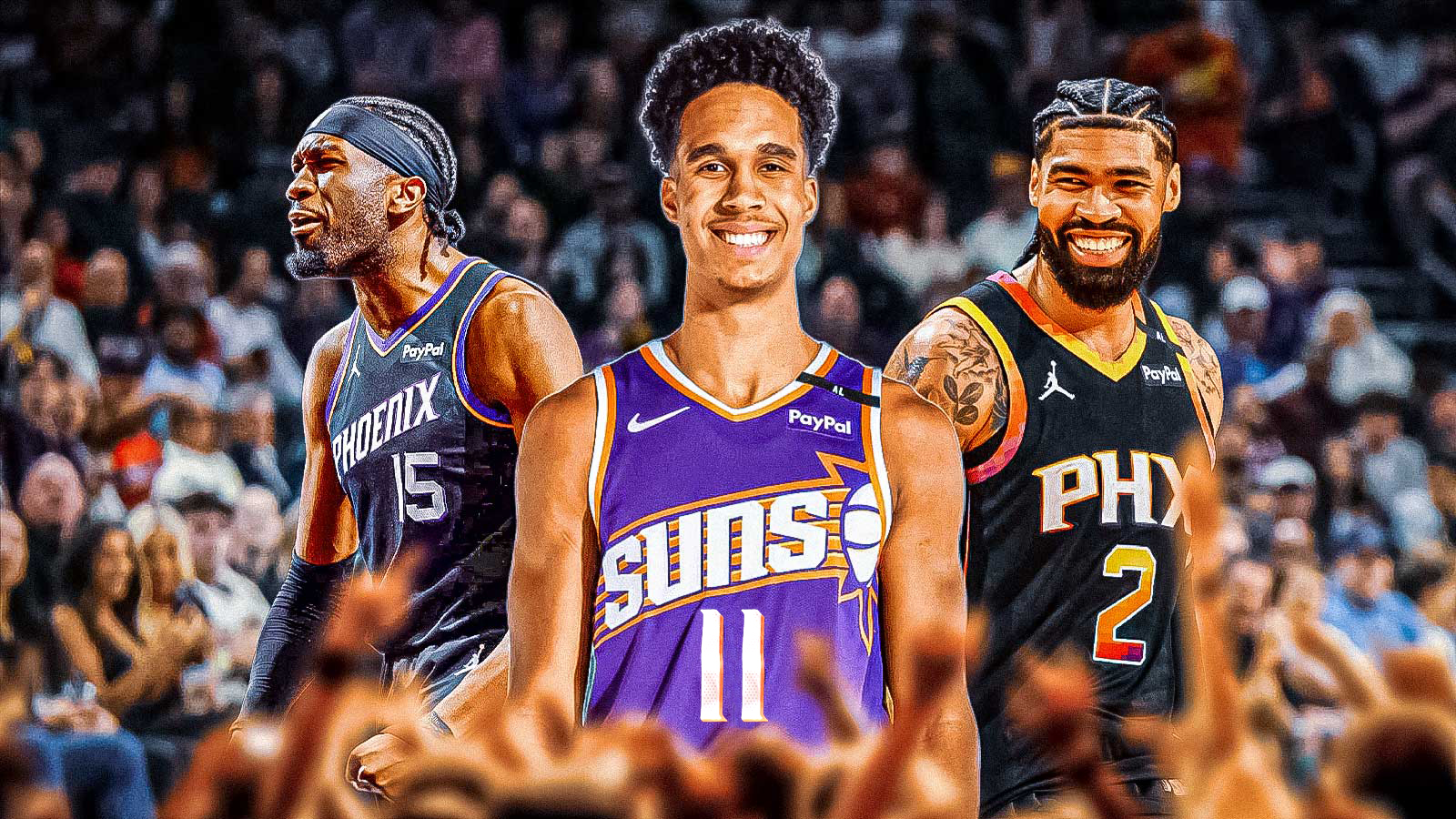For the first time since Amar'e Stoudemire was a perennial All-Star, the Phoenix Suns have a franchise-caliber big man, selecting DeAndre Ayton with the first overall pick in the 2018 NBA Draft. What that means in today's NBA, where even the Seven Seconds Or Less Suns are outdated, remains to be seen.
The Suns left Thursday night with a stockpile of young riches. Devin Booker and DeAndre Ayton are the cornerstones, especially on the offensive end. Josh Jackson, last year's first-round pick, has a ton of upside as well. And both Dragan Bender and Marquese Chriss are not of legal drinking age yet.
Phoenix also made an aggressive move to trade up for Mikal Bridges, giving them yet another versatile wing who fits between Booker and Ayton.
DeAndre Ayton and Devin Booker a devastating inside-out combination

More than a decade ago, teams looked to pair frontcourt superstars with perimeter counterpoints to balance things out. The Suns are banking on Ayton and Booker being a high-end offensive tandem for years to come.
The thought of DeAndre Ayton screening for Devin Booker, slipping screens when eyes gravitate too much towards Booker, should be enough to frighten defenses.
Ayton is a great screener with a huge body and finishes above the rim. And there are hopes his fluid shooting mechanics will translate to the NBA 3-pointer, making him a dual threat as a screener. In college, he shot 34 percent on at least on attempt per game; but that's only 12 makes total on the season. If the Suns get a pick-and-roll point guard who can draw opposing bigs out of the lane, Ayton instantly gains more value.
He has the tools but will need to work on refining his game. One thing Ayton isn't going to be is the modern stretch-big who is an alert playmaker from the elbows and the top of the key. Despite his high usage at Arizona, Ayton only logged 1.6 assists per game to his name for the Wildcats and that's with a high-caliber of players surrounding him. Those Wildcats never figured things out on either end of the floor, balancing multiple guys that needed touches with two seven-footers. It's hard to know just how much of his lack of playmaking should be attributed to his situation and how much is his lack of ability.
Signs may point more towards the latter, with his shot selection being the main culprit. Ayton fell in love with contested mid-range jumpers, working through some dastardly shots and missing easy passing opportunities. The Suns could build a roster that doesn't put Ayton at the elbows frequently, instead leveraging him towards the corners or the top of the key after pick-and-pops to maximize his shooting while discouraging those poor shots.
Ayton was utilized a ton out of post-ups in college, which accounted for 29 percent of his scoring opportunities, according to Synergy Sports Tech. Conversely, Ayton's worst statistical category in terms of scoring efficiency was as the pick-and-roll screener, where he scored on fewer than 40 percent of his opportunities. A lot of that comes from poor pick-and-pop efficiency, where he's bricked some shots completely off the glass and not even hit the rim.
He also needs to evolve and mature on the defensive end if he's going to be the defensive anchor the Suns want. This pick changes the way Phoenix plays on defense. Instead of building towards a switchy 1 thru 5 lineup of super athletic and versatile pieces, they'll now rest their hopes on Ayton becoming the rim protector his physical tools suggest he can be. Averaging 1.9 blocks per game and 8.2 defensive rebounds in college showed flashes, but his pick-and-roll defense and decision-making could improve.
Fitting The Roster Around Ayton

How do Ryan McDonough, Igor Kokoskov and the Suns put this together? They've done a good job by flanking the duo with defensive-minded wings like Josh Jackson and Mikal Bridges. Jackson, who showed impressive flashes during the second-half of his rookie season, can guard opposing guards and anyone positions 1 thru 4. That helps save Devin Booker on the defensive end, an area he's shown a lack of aptitude and attitude for in the early stages of his career.
The Bridges pick is super interesting, as he projects to be a floor spacer at the 3 or the 4 and a guy that guards both positions. As the 4 in Phoenix, he'd be able to open the court for Ayton to dive to the rim, while using supreme length to bother the more perimeter-oriented 4-men in the league. Together, Bridges and Ayton provide so much more potential outside shooting to the Suns than they've had with Chriss and Alex Len as their starting frontcourt. That opens up so much more lane for guys like Booker to attack poor closeouts, a pass-first point guard like Elfrid Payton (who is a restricted free agent) to create for others, or brutish wing scorers like TJ Warren to bully their defenders in the lane.
Realistically, the Suns are in a a good spot long-term after this draft. Elie Okobo, their pick in the second-round, is a high-end scoring point guard that might not come over right away, but could be the type of dynamic scoring point guard that brings out the most of DeAndre Ayton. Their three draft picks, Devin Booker, Dragan Bender and Josh Jackson are all currently 21 years of age and younger. This is a really good long-term core in Phoenix. Okobo is the type of guy that could come over now and show us flashes of who he's going to be long-term. Still, I'm not expecting big-time leaps in the standings from Phoenix this year.
Right now, the Suns are a blank slate. They have a huge prospect at center, a proven shooter and scorer tailor made for today's game in the backcourt, a few multi-positional defenders with shooting upside and enough money to attract a decent veteran or two. Defense is still the question, but this is a team that we really shouldn't sleep on over the next few seasons.
Phoenix has around $12 million in cap space remaining this summer after the draft, and that number could go up to $17.5 million if they cut Alan Williams by July 6th, and close to $20 million if they make a few other cuts to their roster. What the Suns do at the point guard spot will help dictate the immediate viability of this roster, as well as how quickly guys like Ayton and Bridges assimilate to NBA-level competition. With that much money, and two veterans on expiring contracts in Tyson Chandler and Jared Dudley, there are plenty of moves these Suns could make to help expedite their process and get them knocking on the door of the postseason.








